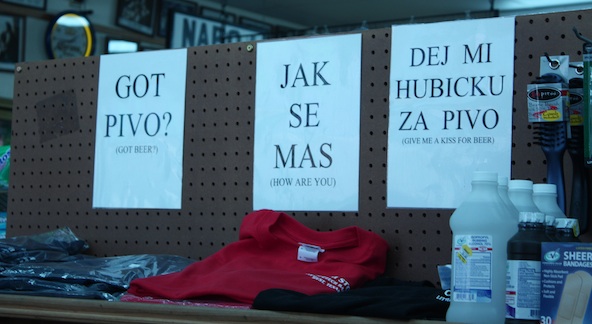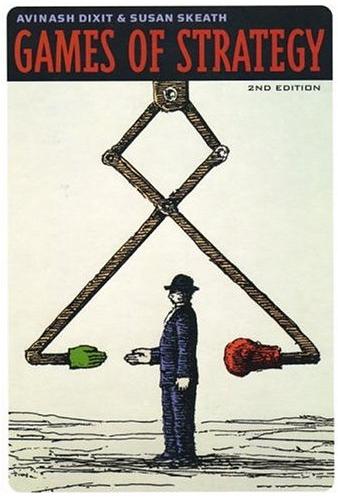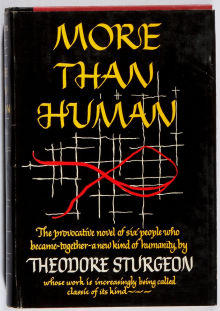
What do you want?
Googling “how to reduce the need for affection” doesn’t turn up all that much, and if you ask your friends, they’re just gonna laugh at you. Until weeks later, after they’ve been ditched by whomever it was for them that month, and they come to you, tail between legs, asking “Hey…did you ever find out how to reduce the need for affection?” This has happened to me multiple times!
In researching reducing the need for affection, I’ve come across plenty of articles that try to dodge the issue by avoiding the word “affection.” They claim people are seeking “attention” or “prestige” or “approval” or some other medical-sounding reward. But I think the situation is a lot hotter than that, and by hot I mean a warm fuzzy HUG — get your mind out of the gutter.
A lot of the search results you DO get (YGMV*) are content-farm articles on how to spay or neuter your pet (…so that’s what they’re calling it now?) or y so srs/pitiful pieces in the Huffington Post about how to make your man show you more affection (…she really hasn’t figured that out yet?). I lost the very few useful links I came across. But here’s what I’ve discovered:
- Get busy working on an idealistic project(s).
- Get a pet (this is more of a hack: route around humans).
- Get lost. Aloneness becomes a more comfortable habit given time.
And keep in mind this Theodore Sturgeon quote from his novel Godbody, which the character Britt Svenglund ascribes to the character Dan Currier: “any person who cannot be by himself, it’s because when he is by himself he thinks he is not in good company.”
In the last year, I’ve been in a totally unprecedented situation: I’ve had lots of friends! And I’ve conducted a lot of socializing. (Mostly at this excellent coffeehouse & computer repair shop in Fort Worth.) The whole experience startled me. “Wow, so this is what all the people I hated in high school were doing!” It gets so thoroughly, disgustingly addictive. You wake up one day, and your emotions are beseeching the universe to deliver you affection from others. Your long-lasting contributions to humanity? Yeah, screw those. WAIT NO!
You have to consciously pull yourself away if you get addicted. (Twitter, I’m looking at you.)
Now, you might not want to become a recluse. Currently you gotta interact with people to get where you want to go in life, and it turns out social skills are useful for that. Plus, a good social space generates good random. You encounter people who give you knowledge and paying gigs and culture. This happens in cyberspace, too, but it happens differently in meatspace; I’m not sure how to describe the difference, or why both are valuable.

Brain in a Vat Doesn’t Need Your Meatspace (Pic stolen from here).
A pickup artist is going to look at people with alleged affection-deficits and offer to teach them how to acquire more affection. Which, when you think about it, is not unlike a nicer (or at least nicer-sounding) Thrasymachus, who (according to Plato) taught that justice is nothing but “the advantage of the stronger.” (In the fifth century BCE, in ancient Greece, you could buy teachings from sophists such as Thrasymachus. Early-day Tony Robbins.) Pickup artists have a term: One-itis. Urban Dictionary as usual has the best definition:
Often confused with love, this is the feeling that a particular woman is actually special. This is just an illusion; she is the same as the other three or so billion. “Go fuck ten other women” is the most commonly prescribed treatment for this “disease” (hence the “itis”), as it tends to show quite quickly how very alike people are.
But everyone is a special snowflake, dammit (srsly, you are. And aren’t at the same time, too. Paradox WOAH!). Anyway, it is just remarkable, the difference in perspective, when faced with the question: “What do I do about my affection-deficit?” 1) Become more skilled at manipulating people into giving you affection; or 2) Reduce the need for affection. I’ll take option 2.
Not so fast, the psychiatrists are here. They describe “the self-effacing solution” of wanting too much affection, and the resignation solution of (among others) schizotypals wherein you want too little. Oh, good, the psychiatrists left. Continuing on.
Once I was chatting online with someone, importuning the person for attention affection, and found myself rebuffed; instantly my mind generated epic narratives about how they were full of shit and one day, despite my anger and bitterness, I would triumph before all! AT THE EXACT SAME TIME in another chat window someone was importuning me for attention affection, all plaintive, and I was like, geez, this person’s annoying, won’t they go away, like srsly. Humans are up to here in this affection-acquiring attention-economy business. It’s the pits.
So you want the golden mean of affection and social interaction that suits your purposes and not the purposes your addictions or inexperience define for you. (A golden mean is not necessarily in the middle of the continuum, and not necessarily any sort of average.) On the other hand, maybe you’re such an awesome mystic that you flat-out don’t need to interact with others at all. In which case … can we meet?
INTERLUDE. Let’s take a break for a second.
* YGMV: Your Google May Vary, depending of factors such as your IP address. Which is one reason why proxy networks such as Tor are fun: “Today I’m gonna Google from the point of view of someone in the Czech Republic. Podívejte!“
Writing this I found out there’s a now-defunct Swedish goth metal band called Beseech.

They appear not to want my affection…but is it a reverse psychology trick?
Beseech covered ABBA’s “Gimme! Gimme! Gimme! (A Man After Midnight)” which is both awesome and horrible, and most fitting for this post.
Half past twelve / And I’m watching the late show in my flat all alone / How I hate to spend the evening on my own! … [Yeah I can’t take any more of this either.]
END INTERLUDE. Back to srs bizns.
I should point out that killing a social addiction is most conducive to creative thought. Which is much more useful to the world and (less important) much more happiness-producing than nightlife. What other people think really gets into you and mucks with your invention wellspring. Of course, not so good to invent something without people in it, so at least say hi to somebody today, okay? Or maybe just this week. (Even if just online ;-)


How to Reduce the Need for Affection by Douglas Lucas is licensed under a Creative Commons Attribution-NonCommercial-ShareAlike 3.0 Unported License. Based on a work at www.douglaslucas.com. Seeking permissions beyond the scope of this license? Email me: dal@riseup.net.
What do you want? Googling “how to reduce the need for affection” doesn’t turn up all that much, and if you ask your friends, they’re just gonna laugh at you....
A lot of people I’ve recently met center their lives around winning games, with scoring casual sex encounters as one of the main ones. In this Interview with Pickup Artist Chaser Clarisse Thorn, the interviewer, whom the answer-ready Clarisse just barrels over, splashing her slang about One-itis and strategic ambiguity and outcome independence, asks: “Must everything be framed in terms of a game? What if […] You want to opt-out of that worldview?”
Clarisse answers by saying everyone’s playing games regardless of whatever nobility they affect.

Protester nobly not playing a game; opting-out or super-rational opting in?
One guy I know who regards himself as a skilled pick-up artist (or, as their lingo has it, a PUA) denigrated a certain other person who likes to read books in public by saying the person reads books in public for the sake of appearing broody to women. Maybe the reader just likes to read books. Anyway, the guy writes off men who do not optimize for the degree of social success he regards as advisable by saying these broody idealists have lost so many social games that now they’re just bitter. (As if bitterness alone is damning.) That’s often partly true, I believe, but by not thinking further he’s foreclosing himself from understanding a dimension of human experience that for him just isn’t salient.
I think practicing idealists — let’s say good artists and whistleblowers for specificity — share something: they intentionally lose games in order to create new realities. Think about whistleblower and soldier Joe Darby who exposed the abuses at Abu Ghraib — which included the gruesome CIA-assisted murder of “ghost prisoner” Manadel al-Jamdi. As recounted in Phil Zimbardo’s excellent book The Lucifer Effect (p.476-77), Darby said the abuse he witnessed
“just didn’t sit right with me. I couldn’t stop thinking about it. After about three days, I made a decision to turn the pictures in. You have to understand: I’m not the kind of guy to rat somebody out….But this crossed the line to me. I had the choice between what I knew was morally right and my loyalty to other soldiers. I couldn’t have it both ways.”
After retaliation by Secretary of Defense Donald Rumsfeld, Darby “was whisked away, and eventually concealed in military protective custody for the next several years.”
“But I don’t regret any of it,” Darby said recently. “I made my peace with the decision before I turned the pictures in. I knew that if people found out that it was me, I wouldn’t be liked.”
“For many,” Zimbardo writes, “Darby’s calling attention to the abuses was unpatriotic, un-American, and even faintly treasonous. ‘Hero a Two-Timing Rat,’ ran a headline in the New York Post. [… Darby] was unable to accept [a Presidential Citation honor from the American Psychological Association] because he, his wife, and his mother had to remain in military protective custody for several years in the wake of the many retaliation threats they received.”
The game, the incentives lined up for Darby did not offer him victory for whistleblowing. He decided it was more important to create a new reality wherein injustice at Abu Ghraib had a better chance of being righted. These are the kind of people, I think, that pickup artists write off as merely being bitter. (Note the mainstream media’s dogged efforts to reduce idealist Bradley Manning’s motives to social frustration.)
Another guy I know defended Joe Paterno for not doing enough about the Penn State child sex abuse scandal. This guy said Paterno was being paid well, and when you are being paid well, you can’t be expected to risk things; he also said it with a wink wink, nudge nudge attitude that conveyed “Mature people in the know agree with me.” He is a popular, cheerful young man who is solidly liberal, solidly Democrat. His attitude that maturity consists in surrendering ideals belongs to the feel-good pickup artistry of political and social marketing: Romney’s RNC speech, Obama’s speeches, The Daily Show, TED Talks. The content is irrelevant here; the truth or falsehood or the value of a particular Daily Show joke or Romney claim is irrelevant here. What I am saying is that the way marketers prioritize making the audience feel good higher than the content is most dangerous. We have a world where marketing and appearance trump reality and truth-telling to such an extent that anyone who prefers the latter over the former is cast off as immature and bitter before they are even listened to. But how are you supposed to report CIA torture? With a laughtrack?
Good artists work the same way, though not in the conscious decision-making manner of whistleblowers. By a sort of instinct, good artists wind up rejecting the incentives the main of the art market offers them and create not ossified things but new and therefore real things. New realities. Creative writing is good to the extent that writers allow themselves to live fully while writing; that reality pays off in the voice or tone of the piece, which reminds readers not to trust in appearance but rather in reality. Somebody might be reading a book in public to remind himself of that.
You could ask, though — what is the difference between perception-management (a negative term for a component of marketing: managing consumer or voter perceptions) and putting your best foot forward? After all, many of the techniques pickup artists teach are useful social skills to learn, just amped up and repurposed for sexual conquest. And though the horizon for contributing to humanity anonymously (see these to learn more) is improving, people pretty much still need to interact with others to get where they want to go.
When you put your best foot forward, you are primarily allowing people to perceive you of their own accord, rather than emphasizing your manipulation of consumer and voter perceptions. I say emphasize because of course people are always managing perceptions by picking out what outfit they want to look good in today, etc. But it is when appearance overtakes reality that you have a problem. Especially if you can no longer tell the difference between the two. The phenomenological difference between them in first-person experience is real, I think. I’m not entirely sure. More than one slightly ashamed person in a private moment has asked me how they can make themselves more authentic. Maybe I am bitter, but I never know how to answer that question, because it is a problem I’ve never really had.


I Hate Game Theory by Douglas Lucas is licensed under a Creative Commons Attribution-NonCommercial-ShareAlike 3.0 Unported License. Based on a work at www.douglaslucas.com. Seeking permissions beyond the scope of this license? Email me: dal@riseup.net.
I have yet to read this book A lot of people I’ve recently met center their lives around winning games, with scoring casual sex encounters as one of the main...









 Twitter:
Twitter:
Join the conversation